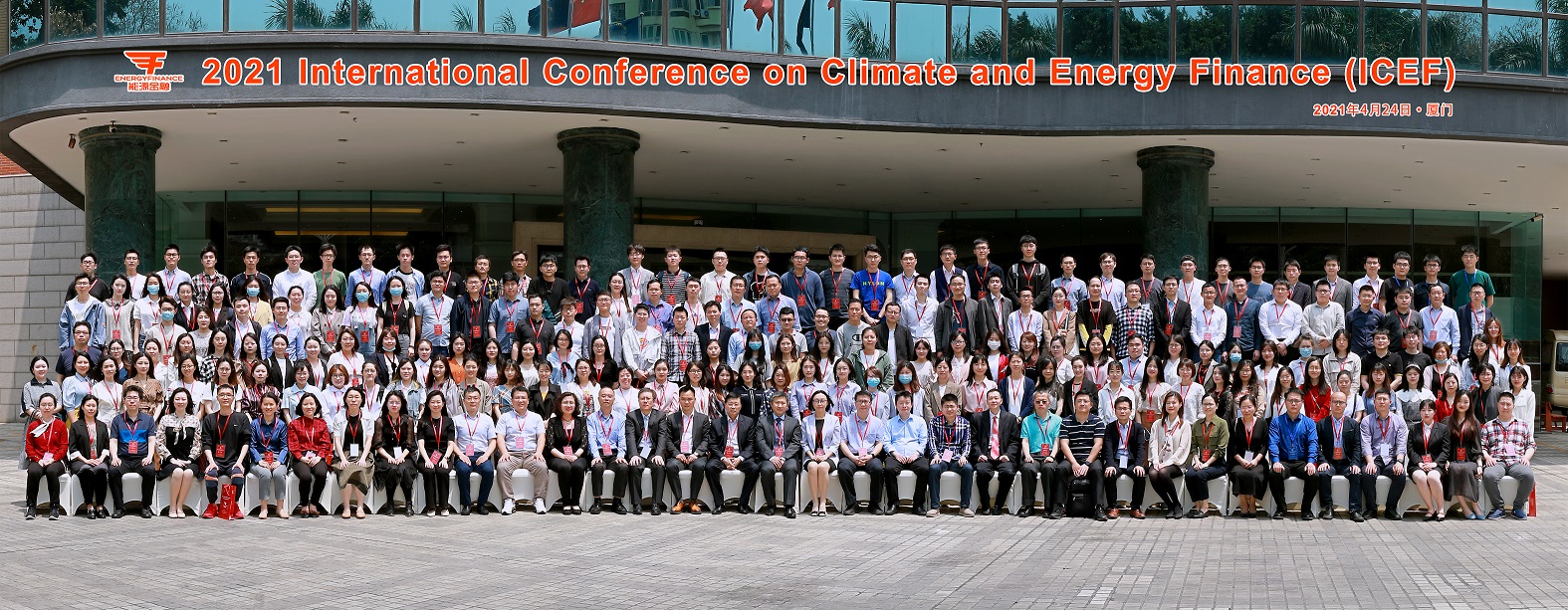Pathways to carbon neutral: Opportunities and challenges for climate and energy finance
At the General Assembly of the United Nations on 22 September 2020, President XI Jinping announced that “China would scale up its nationally determined contributions and adopt more vigorous policies and measures to peak carbon dioxide emissions before 2030 and achieve carbon neutrality before 2060”. The transition towards carbon neutrality will gear capital inflows towards climate-related segments. Meanwhile, climate finance will become a major focus during the development of the financial system in the foreseeable future. Studying and understanding the risk exposures of the financial system to climate change is critical and conducive to promoting the resilience of the financial sector and the effectiveness of the macroeconomic policy framework.
Against this backdrop, Prof. LIN Boqiang, Dean of the China Institute for Studies in Energy Policy, Xiamen University, emphasized that the achievement of carbon neutrality is an important national goal of China in his opening remarks for the 2021 International Conference on Climate and Energy Finance held on April 24-25 in Xiamen. While there is a long way to go and complex, systematic efforts are required, innovations from the researchers in the energy field will greatly help to seek an optimal path, he also added.
This year, more than 320 scholars from over 60 universities in China, France, Italy, UK, the US, Japan, Australia and Germany participated in this conference and discussed cutting-edge issues in the field of climate and energy finance, focusing on the conference theme " Pathways to carbon neutral: Opportunities and challenges for climate and energy finance ".
The past few years have witnessed the thriving development of several research areas including the construction of the carbon financial market, modelling systemic risk of the energy markets, climate risks, and the integration of financial and energy markets, etc., added by Prof. JI Qiang from the Institutes of Science and Development of Chinese Academy of Sciences (CASISD). With rich research outputs, the Chinese researchers are keeping pace with global frontier researchers, with some in the leading position.
Lutz Kilian, Professor from the Federal Reserve Bank of Dallas, pointed out in his keynote speech that gasoline price shocks should be one important determinant of short-run inflation expectations, but not the most important determinant, as commonly believed.
Moreover, Prof. Roger H. Von Haefen from North Carolina State University elaborated how the charging of congestion fees on the coast of the United States can improve social welfare in his keynote speech, for instance, if higher congestion fees are imposed, people’s travel compensation will have a decreasing trend.
Professor ZHANG Bing from Nanjing University displayed his findings that Non-governmental Organization (NGO) monitoring can help effectively improve corporate social responsibility through experiments, and the corporate social responsibility-related decisions can be affected through two channels including "reputation" and "regulation".
During the editor-in-chief forum, editors of Environmental Economics and Policy Studies, Journal of Commodity Markets, The Energy Journal, Sustainability Science, Economic Analysis and Policy, Resources Conservation and Recycling came to the agreement that China’s publication has taken an important position in the world, and a sound journal ecological environment is crucial to improving the quality of research.
Since 2018, the International Conference on Energy Finance has been successfully held for four times, with participants coming from more than 150 universities in 21 countries and regions. This year, the conference received 182 papers. Two online sessions and 40 offline sessions were successfully organized. The next ICEF conference of year 2022 will be convened in Nanjing, China.

Group photo